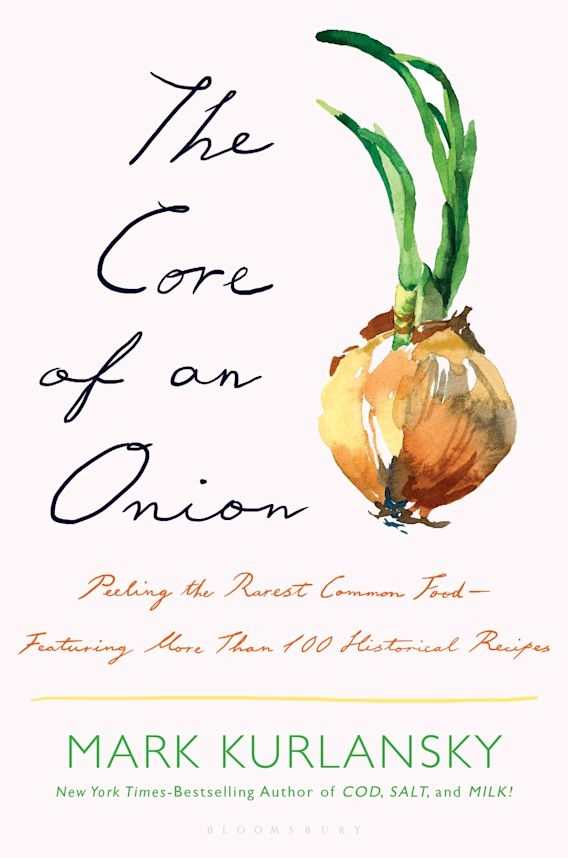The Core of an Onion
Peeling the Rarest Common Food―Featuring More Than 100 Historical Recipes
Mark Kurlansky is the bestselling author of culinary and social histories covering cod, oysters, milk, and salt. His latest book, The Core of an Onion, gives the starring role to the humble yet essential onion, combining beguiling nuggets of literature, art, medicine, botany, and agriculture with assured, bouncy writing and more than one hundred recipes.
Onions and their allium kin have been used as aphrodisiacs, folk remedies, dyes, or comestibles. Introducing rapid-fire facts from ancient civilizations and contemporary cultures, the book covers how onion farmers sway elections in contemporary India; the making of sweet, spiced medieval onion concoctions; and the pungent scents and tastes of Catalan food festivals.
An accomplished cook, Kurlansky interjects some of his own kitchen tips and firm opinions into this work, as when he sets James Bond straight about martini shaking (it chips the ice and dilutes the gin) and decrees that otherwise delightful pickled onions should “not be swimming around in my cocktail.” However, it is his unabashed admiration for historical cookbook writers, women especially, that is most endearing. The “joyfully physical” recipes of British cookbook author Hannah Glasse, the erudition of Spanish countess Emilia Pardo Bazan, and the social activism of Lydia Maria Francis Child are given special focus among the recounting of onioncentric recipes. Onion soups of every description; onion sauces both creamy and au vinaigrette; onions stuffed, braised, glazed and creamed; and even savory and sweet pies make up a toothsome sampler of traditional cuisines and chefs’ particular styles.
A sparkling mix of snappy prose with Kurlansky’s own illustrations, The Core of an Onion is a perfect treat that demonstrates the dictate that “onions have a way of taking on unexpected significance.”
Reviewed by
Rachel Jagareski
Disclosure: This article is not an endorsement, but a review. The publisher of this book provided free copies of the book to have their book reviewed by a professional reviewer. No fee was paid by the publisher for this review. Foreword Reviews only recommends books that we love. Foreword Magazine, Inc. is disclosing this in accordance with the Federal Trade Commission’s 16 CFR, Part 255.

